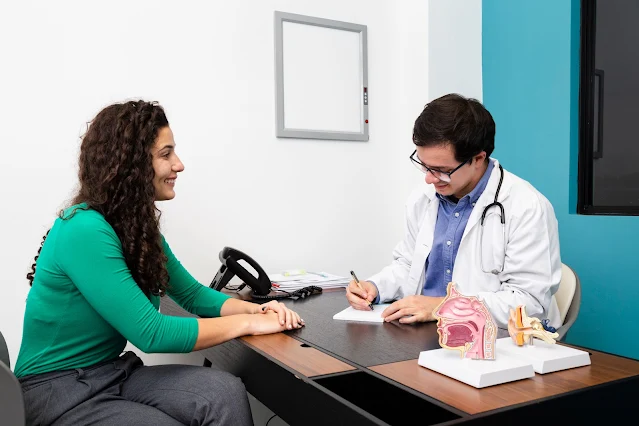The landscape of sexual health in England and Wales is undergoing a significant shift, marked by a surge in gonorrhoea diagnoses that spans almost every council area. This alarming trend, coupled with a notable increase in syphilis cases, signals a pressing concern for public health. As sexual health services grapple with unprecedented demand, it becomes imperative to delve into the intricacies of these rising numbers and explore the regions most affected.
The Gonorrhoea Epidemic: Unveiling the Statistics
The Overall Picture
Gonorrhoea, once considered a well-contained health issue, has witnessed a staggering increase in diagnosis rates. Data analysis from the Office for Health Disparities, as reported by the Local Government Association (LGA), reveals that 97% of council areas have experienced a surge in gonorrhoea cases since 2017.
Regional Hotspots
Particular regions have borne the brunt of this epidemic, with Wigan, Dorset, Somerset, Devon, and Torbay emerging as the frontrunners in the escalation of gonorrhoea diagnoses. Understanding the dynamics of these regional hotspots is crucial to devising targeted strategies for intervention and prevention.
Syphilis on the Radar: Identifying Emerging Trends
The Scope of Increase
Syphilis, another sexually transmitted infection, has not been immune to this concerning trend. The LGA's analysis indicates that 71% of council areas have witnessed a surge in syphilis cases during the same period. Identifying the scope of this increase and its distribution is essential for a comprehensive understanding.
Hotspots for Syphilis
Certain areas, including Middlesbrough, the Isle of Wight, Darlington, and Redcar and Cleveland, have experienced the most significant spikes in syphilis diagnoses. Exploring the unique factors contributing to these hotspots can provide insights into the socio-cultural aspects influencing the spread of the infection.
Chlamydia's Quiet Rise: Unveiling the Lesser-Known Surge
The Silent Increaser
While gonorrhoea and syphilis take the spotlight, chlamydia, a relatively silent player in the realm of sexually transmitted infections, has not remained untouched. Approximately 36% of council areas report an increase in chlamydia diagnoses, underscoring the need to address the broader spectrum of sexual health challenges.
Unprecedented Demand: Impact on Sexual Health Services
Strain on Services
As the rates of these infections soar, sexual health services find themselves at the frontline of an unprecedented demand. The strain on resources, both human and infrastructural, poses a significant challenge to the effective delivery of services.
Regional Disparities in Service Demand
Understanding the regional disparities in demand for sexual health services is vital for developing responsive and adaptive strategies. Regions experiencing the highest increases must receive targeted support to ensure equitable access to care.
The surge in sexually transmitted infections (STIs) across England and Wales has become an escalating public health concern. With almost every council area witnessing a spike in gonorrhea diagnoses and a substantial increase in syphilis cases, the demand for sexual health services has reached unprecedented levels.
Understanding the Numbers: A Statistical Overview
The statistical landscape paints a concerning picture. According to data analyzed by the Local Government Association (LGA), the rate of gonorrhea diagnosis has surged in 97% of council areas since 2017. Simultaneously, 71% of areas experienced an alarming rise in syphilis cases during the same period. The gravity of the situation is further underscored by a 36% increase in chlamydia diagnoses in 36% of council areas.
Spotlight on Hotspots: Where the Surge is Most Pronounced
Certain regions have emerged as hotspots for STI increases. Wigan, Dorset, Somerset, Devon, and Torbay witnessed the most significant spikes in gonorrhea diagnoses, while Middlesbrough, the Isle of Wight, Darlington, and Redcar and Cleveland saw a surge in syphilis cases.
Coping with the Crisis: The Strain on Sexual Health Services
Sexual health services are grappling with the strain imposed by the surge in STIs. The overwhelming demand poses a considerable challenge to the existing infrastructure, prompting urgent calls for increased funding and support. As the figures indicate, the need for sexual health consultations increased by a third from 2013 to 2022, with nearly 4.5 million consultations conducted last year alone.
Navigating the Complex Web: Strategies for Coping with the Surge in STIs
Conclusion
In conclusion, the surge in gonorrhoea, syphilis, and chlamydia diagnoses across England and Wales demands a multi-faceted approach. From targeted interventions in regional hotspots to bolstering sexual health services, addressing this public health challenge necessitates collaboration, innovation, and a nuanced understanding of the socio-cultural factors at play.


"The content variety keeps me engaged – there's something for everyone."
ReplyDeleteYour blog is a testament to the positive impact of sharing personal stories.
ReplyDelete